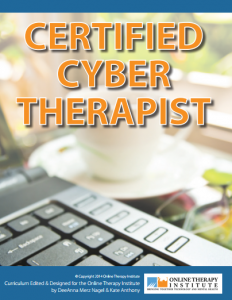This essay first appeared in the book, Controlling_Connectivity. Art, Psychology, and the Internet by Gretta Louw
Citation:
Nagel, D.M. (2012). Internet Addiction, Really?? In G. Louw Controlling_Connectivity: Art, Psychology and the Internet (pp.48-49).Limited Edition Artist’s Book: Berlin.
What is internet addiction? What is your reaction when you hear those words in a movie or on the news? How about when you read an article in the local paper, or see a tweet that refers to internet addiction? Do you shrug your shoulders or roll your eyes… or does that phrase “internet addiction” resonate somehow?
In the peer community of helping professionals the debate about whether or not the internet can cause addiction has been going on for some time. The banter is online – in blog posts, on Facebook, on Twitter and Linkedin. Professional journal articles are cited as proof that internet addiction does or does not exist. We debate whether internet addiction should be included in the new DSM (Diagnostic & Statistical Manual of Mental Disorders) and as the DSM-V is in the works now, the conversation is quite heated. Conceptually, internet addiction could be placed under compulsive-impulsive spectrum disorders [i]. And yet some argue that this “addiction”
– the tendency to involve oneself to the point of personal and social detriment- involved in gaming, social networking or cybersex for example-
…does not really exist.
Most telling, is that clients are often the ones identifying with the label. “I think I am addicted to the internet…”, “I can’t stop gaming…I think I am addicted…”, or “I am addicted to online sex…” While we may not need another pathologizing label, it is important to consider how the general public, and more importantly, how people who are affected, call this out.
No doubt, research is showing that the effects on the brain are similar in people who are engaged in compulsive internet activity to those affected by other addictions.[ii] Of course, these are the extreme examples. Statistics reveal that 5-10% of people who are connected online actually become addicted.[iii]
With all the chatter, how do you know? How do you know if you have taken your connectivity too far, or if a loved one is “caught in the web” so to speak? Let’s break it down into four central life domains:
- Skills of Daily Living
- Vocation/Meaningful work
- Relationships
- Wellness
If for instance, someone is sitting down to the computer before eating or bathing, then this would constitute a deficit in the “Skills of Daily Living” domain. If a person cannot obtain or hold down a job because of internet use, then one might conclude that the “Vocation/Meaningful Work” domain is suffering. If the person has a difficult time establishing or maintaining relationships because of internet use, including disengagement from the family and family responsibilities, then we can conclude that the “Relationships” domain has been affected. Finally, if a person’s health is deteriorating due to internet use (not getting enough sleep, food or exercise, complaining of headaches or blurred vision and other health complications) then certainly the “Wellness” domain is called into question. Many times the 4 domain areas overlap and it is not one or two but all of the domains that are affected to some extent.
Internet addiction is not a label (official or not) to be used lightly. Many people stay connected and are online for many hours during the day. When leisure activities such as gaming and socializing on sites like Facebook are combined with work responsibilities or even reading a book on a tablet, then we see how people might spend literally hours, sometimes all day, logged on. The cautionary note is to find the balance between what might appear to be an “addiction” with the understanding that being logged on and plugged in is part of the social fabric in which we live. Normalizing a teen’s use of technology for instance, is often important for parents so that the use of technology can be put in perspective. It is not even that we are no longer building relationships or that the internet is isolating us; rather, it is that we are connecting differently.
It seems that whenever a new wave of technology hits, cultures tend to go to the extreme before we find our balance. We did this with television viewing (ergo “couch potato syndrome”) and we are doing it with the internet. A small percentage of people will always find the extreme to be a powerful experience, taking the risk of falling into the addiction abyss. We should continue with prevention and intervention efforts. We should also keep in mind most of us have much to gain from this brave new connected world!
DeeAnna Merz Nagel psychotherapist, educator and consultant. She co-founded the Online Therapy Institute and the Online Coach Institute and she is Managing Co-Editor of TILT Magazine ~ Therapeutic Innovations in Light of Technology. Her counseling and consulting specialties include relationship issues, alcohol and drugs, surviving abuse, internet addictions and understanding how technology impacts our lives. Her private practice is located in Atlantic Highlands, New Jersey, USA.
[i] Block JJ. Issues for DSM-V: internet addiction. Am J Psychiatry. 2008;165:306–307.
[ii] Lin F, Zhou Y, Du Y, Qin L, Zhao Z, et al. (2012) Abnormal White Matter Integrity in Adolescents with Internet Addiction Disorder: A Tract-Based Spatial Statistics Study. PLoS ONE 7(1): e30253. doi:10.1371/journal.pone.0030253
[iii] Laurance, J. (2012). Addicted! Scientists show how internet dependency alters the human brain. The Indepedent. Retrieved January 15, 2012 from http://www.independent.co.uk/news/science/addicted-scientists-show-how-internet-dependency-alters-the-human-brain-6288344.html
Image courtesy of Stuart Miles at FreeDigitalPhotos.net
….



